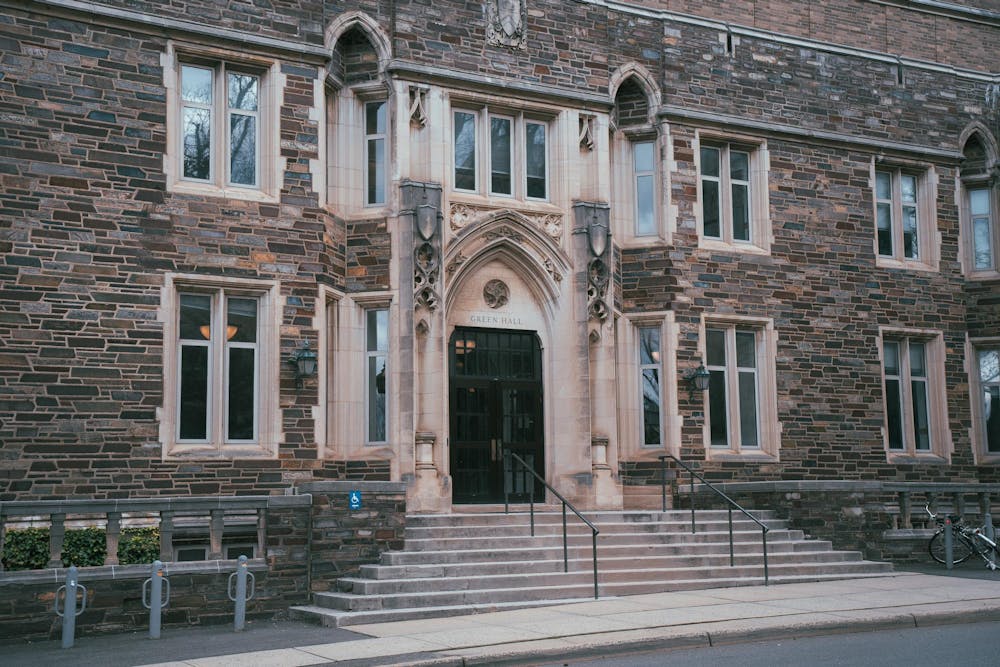After over a year of biweekly bargaining sessions since postdocs voted to form the Princeton University Postdocs and Scholars-United Auto Workers union in May 2024, the union has submitted around 40 proposals on issues ranging from healthcare to retirement to relocation assistance. Tentative agreements have been reached on nine articles, including on job postings and sharing of disciplinary information.
Postdoctoral researcher Jessica Ng told The Daily Princetonian that bargaining sessions between the union and the University are still meeting every Monday as they did in the spring. The most recent session was held on Oct. 20.
Some issues have been in discussion for many months. For example, Ng and Union bargaining committee member and postdoctoral researcher Katerina Kanevche raised concerns about a University proposal first introduced on Feb. 18, which would allow postdocs to be laid off with a few months’ notice — one month for a one-year appointment, or longer depending on the length of the contract. The union submitted its latest response on Sept. 3, proposing that postdocs cannot be laid off within the first year of employment, and any layoffs must occur with nine months’ notice. Discussions remain ongoing.
According to Ng, the proposal would permit the University to arbitrarily terminate postdocs, potentially due to lack of funding.
“[The proposal] is basically saying, ‘We want a no-fault mechanism to let postdocs go,’” she said. “You’ve been here for less than a year, and [the University] can lay you off with one month’s notice.”
While Ng said the University didn’t explicitly say the layoff proposal was in response to funding cuts, she also noted that “the timing of it certainly implied that.”
University spokesperson Michael Hotchkiss said in a statement that “the layoff proposal is based on the current policy in the Rules and Procedures of the Professional Researchers and Professional Specialists.”
Kanevche and Ng said the postdocs were especially interested in seeking these protections in light of political instability around higher education and labor rights. “Particularly for postdocs and researchers, there is no other form of support on campus right now besides the rights we win through our union,” Kanevche wrote in a statement.

Potential federal instability is “why we want to have these protections concretized in our contract,” Ng said. “If [federal] laws change and these protections become weaker, let’s make sure that these protections are still in place.”
Kanevche wrote that the tentative agreements reached have helped “ensure strong union operations and representation.” Such agreements include procedural definition in discipline and discharge cases, requiring discipline can only be pursued for just cause, as well as flexibility for postdoc holiday observations.
Ng added that progress is also being made on an article strengthening postdocs’ ability to be listed as principal investigators (PIs) on external grant projects.
Under Princeton’s existing rules, postdocs are eligible to be PIs or co-PIs, unlike other staff such as visiting researchers, who must receive University approval. The proposal would require the University to respond to a notice of intent to serve as a PI by the funding sponsor’s deadline.

“What happens is that postdocs will ghostwrite these grants. Their PI is like, ‘help, will you help me write this grant?’” Ng said. “They often don’t understand that you can actually ask Princeton for the postdoc to be recognized as a co-PI on the grant.”
“Some postdocs will either agree to write this grant, but then not get credit for it, and then feel like they didn’t get the recognition they deserve,“ she added. “I’m personally very gratified to see that Princeton has actually made some pretty big movements on that, and we’re coming closer to an agreement.”
Ng said the union’s morale remains steady despite the political climate. “It seems to me like the people who already felt that way [before Trump’s presidency] continue to feel that way, and there’s a lot of people who are really seeing the value in having this collective body, collective voice, collective power,” she said.
Both Ng and Kanevche cited the University’s response to federal policy changes as one of the union’s greatest challenges.
“Since this administration took office, we have seen that the situation has gotten worse and University leadership seems to have become more conservative in their willingness to agree to strong protections for their workers,” Kanevche wrote.
Hotchkiss wrote to the ‘Prince’ that the University’s decisions may be constrained by federal regulations. “Some topics of negotiation are subject to federal law or regulation, and many University research projects are sponsored by the federal government,” Hotchkiss wrote.
“The University’s bargaining proposals take into account many factors, such as institutional values, resources, and priorities, as well as applicable legal requirements,” Hotchkiss added.
Bargaining sessions continue to be held Mondays from 1–4 p.m.
Meghana Veldhuis is a senior News writer for the ‘Prince.’ She is from Bergen County, N.J., and typically covers graduate students, postdocs, faculty, and campus unions and labor. She can be reached at mv4991[at]princeton.edu.
Please send any corrections to corrections[at]dailyprincetonian.com.








